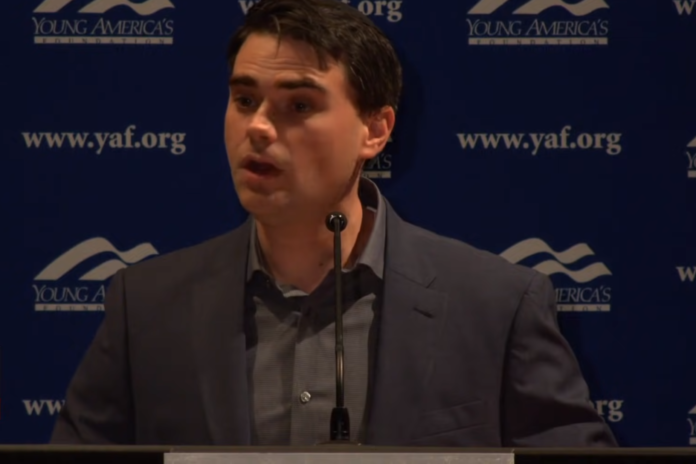
The U.S. Eighth Circuit Court of Appeals has struck down a claim against the University of Minnesota in which two conservative activist groups accused the university of violating the First Amendment, The College Fix reports.
Students for a Conservative Voice (SCV) and Young America’s Foundation (YAF) had collaborated to host conservative commentator Ben Shapiro for an event on the U of M campus in February 2018. Their lawsuit stemmed from the university’s denial of a large venue and its placement of Shapiro at a much smaller, more remote venue than what SCV and YAF requested.
According to the Eighth Circuit ruling summary, SCV and YAF “[lacked] standing to maintain their as-applied claim,” which the court also ruled to be “moot” in light of the university’s updated large events policy.
The University of Minnesota replaced its “Large Scale Event Process,” the old policy that SCV and YAF deemed unconstitutional, with a “Major Events Policy” that, according to The College Fix, “is based on the expected size of the audience and does not give university officials as much leeway to cite security concerns when approving speakers and venues.”
The university’s successful argument against the conservative groups was on procedural grounds: namely that it didn’t even apply the old Large Scale Event Process to the Shapiro event, and also that SCV and YAF did not file paperwork pertaining to that policy.
Throughout early 2018 the groups attempted to book Shapiro for Feb. 26 at the 1,500-seat Ted Mann Concert Hall, but university officials rejected their use of the venue, citing scheduled “rehearsals and performances” that day, per The College Fix.
The University of Minnesota also rejected the idea of the 800-seat Willey Hall, citing skyway access and “proximity to a light rail station.”
Since many universities consider Shapiro and other conservative speakers “controversial” and therefore potential “security risks,” they try to place them in smaller venues located in more remote places. And that is exactly what the U of M did with Shapiro.
The university offered to the groups its 400-seat Continuing Education and Conference Center, located on the St. Paul campus, but they had already sold tickets well beyond its capacity. A YAF member told The College Fix approximately three weeks before the event that, compared with the university’s handling of left-wing speakers like Al Franken and Elizabeth Warren, the treatment they received was needlessly complicated and a blatant double standard.
Shapiro did end up speaking at the St. Paul venue on Feb. 26 with a talk titled “Capitalism and the First Amendment,” but SCV and YAF nevertheless decided to sue the university for allegedly violating their constitutional rights.
Despite the circuit court ruling, it appears SCV, YAF, and their attorneys are still exploring other options to achieve an outcome that vindicates them against the school.
“University officials don’t have the authority to suppress a particular viewpoint on campus simply because they anticipate some students who disagree with it may not respond well,” Alliance Defending Freedom attorney Tyson Langhofer told The College Fix. “Labeling conservative speech as ‘controversial’ and then stifling it on campus prevents students from hearing different viewpoints. It is unfortunate that the 8th Circuit thinks that schools can avoid responsibility by changing their policies and we are considering our next steps.”
















